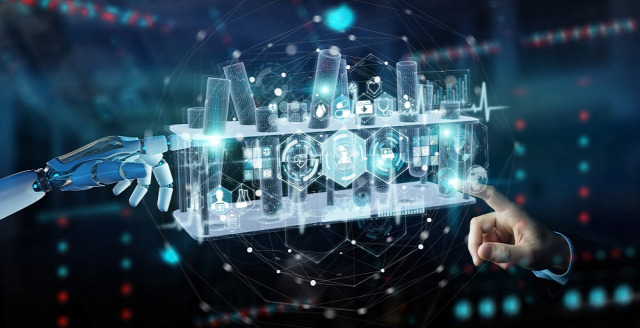
Artificial intelligence (AI) and machine learning (ML) are reshaping the landscape of healthcare, driving innovation and transforming the medical device market. These technologies offer unprecedented opportunities for enhancing diagnostics, treatment, patient care, and operational efficiency. The AI/ML medical device market is poised for significant growth, propelled by technological advancements, increasing healthcare data availability, and the demand for personalized and efficient medical solutions.
According to BISResearch, The global artificial intelligence/machine learning medical device market was valued at $4,011.7 million in 2022 and is anticipated to reach $35,458.2 million by 2032, witnessing a CAGR of 24.35% during the forecast period 2022-2032.
Key Drivers in Artificial Intelligence/Machine Learning Medical Device Market
-
Technological Advancements: Continuous improvements in AI and ML algorithms, along with advancements in hardware, have enhanced the capabilities of medical devices. These technologies can process and analyze vast amounts of data rapidly, providing insights and support for clinical decision-making.
-
Rising Volume of Healthcare Data: The exponential growth of healthcare data, generated from electronic health records (EHRs), wearable devices, and diagnostic tools, has created a fertile ground for AI and ML applications. These technologies can extract meaningful patterns and correlations from complex datasets, aiding in accurate diagnostics and personalized treatment plans.
-
Demand for Personalized Medicine: AI and ML enable the customization of treatment plans based on individual patient data, such as genetic information, lifestyle factors, and medical history. This personalized approach enhances treatment efficacy and minimizes adverse effects.
-
Need for Operational Efficiency: Healthcare providers are increasingly adopting AI-driven solutions to streamline operations, reduce administrative burdens, and optimize resource utilization. AI and ML can automate routine tasks, enhance workflow efficiency, and improve patient care quality.
Artificial Intelligence Medical Device Market by Clinical Area
- Radiology
- Cardiology
- Hematology
Request A Free Detailed Sample on Artificial Intelligence/Machine Learning Medical Device Market!
Key Technologies in Artificial Intelligence Medical Device Market
Diagnostic Imaging: AI-powered imaging systems can analyze medical images, such as X-rays, MRIs, and CT scans, with high accuracy. These systems can detect anomalies, identify diseases, and assist radiologists in making precise diagnoses.
Predictive Analytics: AI and ML models can predict disease onset, progression, and patient outcomes by analyzing historical data and identifying risk factors. Predictive analytics tools help in early intervention and proactive healthcare management.
Robotic Surgery: Robotic surgical systems equipped with AI and ML enhance the precision and control of surgical procedures. These systems can assist surgeons in performing complex surgeries with minimal invasiveness, reducing recovery times and improving patient outcomes.
Patient Monitoring: AI-driven patient monitoring devices continuously track vital signs and health parameters, alerting healthcare providers to potential issues in real-time. These devices enable remote monitoring, reducing the need for frequent hospital visits.
Future Outlook
The AI/ML medical device market is expected to grow rapidly, driven by ongoing technological advancements and increasing adoption in healthcare. Key trends to watch include:
-
Expansion of Telemedicine and Remote Monitoring: The COVID-19 pandemic has accelerated the adoption of telemedicine and remote patient monitoring. AI/ML-powered devices will continue to play a crucial role in providing real-time, remote healthcare solutions.
-
Enhanced Drug Discovery and Development: AI and ML are being increasingly used in drug discovery and development, speeding up the process and reducing costs. These technologies can identify potential drug candidates, predict drug efficacy, and optimize clinical trials.
-
Collaborative Research and Development: Partnerships between AI/ML companies, healthcare providers, and academic institutions will foster innovation and accelerate the development of cutting-edge medical devices.
-
Focus on Preventive Care: AI and ML will shift the focus from reactive to preventive healthcare, enabling early detection and intervention. This proactive approach will reduce the burden of chronic diseases and improve population health outcomes.
Conclusion
The AI/ML medical device market is at the forefront of healthcare innovation, offering transformative solutions for diagnostics, treatment, and patient care. By leveraging the power of AI and ML, medical devices can enhance accuracy, efficiency, and personalization in healthcare. As technology continues to evolve and integration challenges are addressed, the market is set to revolutionize the healthcare industry, ultimately improving patient outcomes and quality of life.

